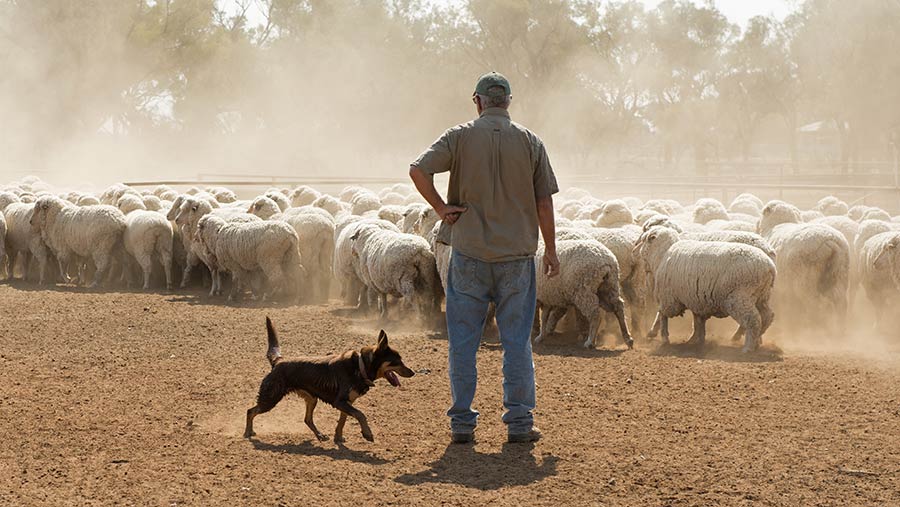Anger as free-trade deal with Australia threatens UK farmers
 © Adobe Stock
© Adobe Stock Farm leaders have expressed their disappointment at the official signing of the UK-Australia free-trade deal, with the NFU describing it as “one-sided” and “damaging”.
The deal was agreed in principle by prime minister Boris Johnson and his Australian counterpart Scott Morrison in London in June and, following final negotiations, was signed by UK trade secretary Anne-Marie Trevelyan on Friday morning (17 December).
See also: Australian trade deal – opportunities and threats to UK farmers
According to a government statement, the agreement will help create new opportunities for businesses and is expected to unlock £10.4bn of additional trade.
“The deal removes tariffs on UK exports, making it cheaper for Australian importers to sell iconic British products like cars, Scotch whisky and UK fashion,” the statement said.
“Australian favourites like Jacob’s Creek and Hardys wines, Tim Tams and surfboards will be more accessible for British consumers.”
Sensitive products
But on agriculture, the NFU is furious that the deal will remove some trade protections for sensitive sectors with immediate effect.
For example, Australian sheepmeat will be granted an immediate tariff-rate quota (TRQ) of 25,000t, rising in instalments to 75,000t, while beef will get a TRQ of 35,000t, rising to 110,000t.
After 10 years, beef and sheep tariffs will go altogether, although a 20% tariff will be applied if volumes of imports get too big for the subsequent five years.
“Despite assurances that these sectors would be afforded some level of protection, we will see full liberalisation of dairy after just six years, sugar after eight years and beef and lamb after 15 years,” said NFU president Minette Batters.
Mrs Batters said it was also concerning that the beef and lamb quotas agreed to would favour imports of high-value cuts – the end of the market where British farmers tend to derive most value.
Seasonality
National Sheep Association chief executive Phil Stocker was also dismayed that the deal had been pushed through “without any resolution on how TRQs could be managed in a way to limit potential damage to our own domestic trade”.
“NSA has called for the use of a licensing procedure to manage seasonality disruption and also for the use of a whole carcass weight co-efficient, to help manage high volumes of cuts. We have no confidence that this is being considered,” he said.
But Ms Trevelyan has rejected these concerns, telling the BBC the deal had “very clear safeguards” and “an overarching safeguard mechanism”.
“The reality is that Australia sends about 70% of its beef and sheepmeat to the Asia-Pacific markets,” she said. “They’re closer for them and they get great prices, so I’m not expecting there to be any dramatic surge into UK markets.”
Standards
Concerns have also been raised about the standards of Australian food production.
Vicki Hird, head of sustainable farming at agri-food group Sustain, said the deal betrayed consumers, farmers and the environment, pointing to the use in Australian farming of feedlots, battery cages and sow stalls.
“The [Australian] government permits the use of hormones and antibiotics to speed up growth as well as the removal of skin from live sheep [“mulesing”, to prevent fly-strike], and they licence almost double the number of highly hazardous pesticides as the UK,” she added.
Ms Hird criticised the UK government’s failure to put core standards in place for food imports.
This is countered by the UK government, however, which, in an “explainer” on standards, says the deal “does not create any new permissions for imports from Australia – hormone treated beef will continue to be banned”.
It adds that there is now a dedicated chapter in the deal on animal welfare, including a “non-regression clause”, which means both sides will not lower their existing standards in order to secure more trade.
